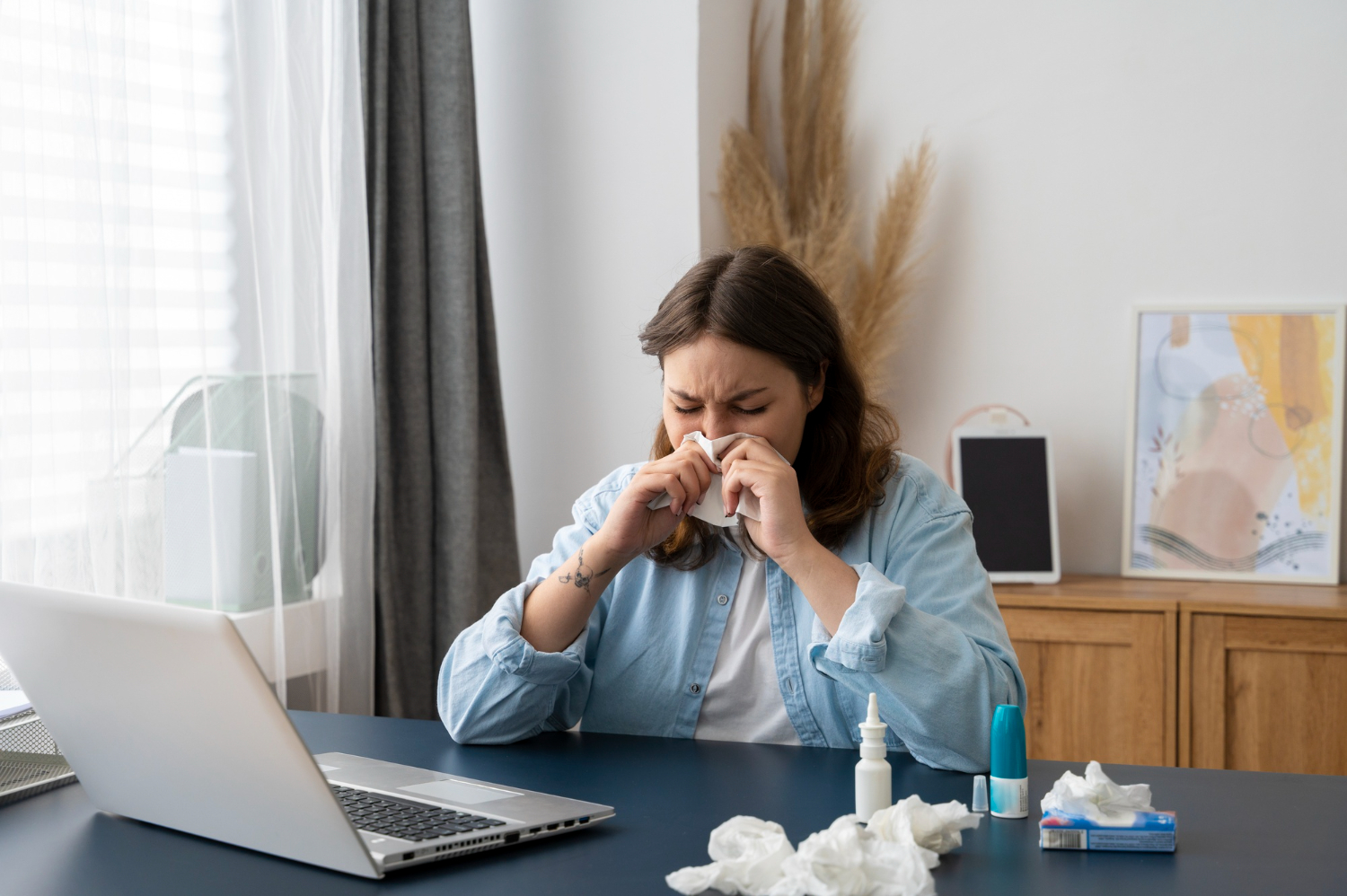Every year, when the seasons shift, plenty of Kiwis feel it straight away. The flowers look stunning, but for many of us, they also come with blocked noses, watery eyes, and a head that feels like it’s stuffed with cotton. It’s the double whammy of seasonal allergies and sinus problems, and they don’t just bother you during the day. For some, the worst of it hits at night.
If you’ve ever dealt with a blocked nose or scratchy throat when the pollen count is high, you’ll know how quickly seasonal allergies and sinus problems can get in the way of a good night’s rest. What feels like a small irritation during the day often turns into a bigger hurdle once you’re lying down, leading to sinus congestion at night that keeps you tossing and turning.
At Auckland Sleep, we often see how untreated allergies and sinus issues quietly wear down sleep quality. The upside is that once you understand the link, there are practical ways to ease the pressure and get back to more restful nights.
Why Do Seasonal Allergies Affect the Sinuses So Much?
The short answer: inflammation. When your immune system reacts to things like pollen, dust, or mould, it produces histamine chemicals that cause swelling in your nasal passages. That swelling is what makes you feel stuffy, and when the sinuses can’t drain properly, pressure builds up. Cue the headaches, facial pain, and that constant blocked-nose feeling.
In New Zealand, spring is the main culprit. Pollen counts shoot up when plants like ryegrass, pine, and even native trees like manuka start releasing pollen into the air. For people sensitive to it, the effect can be immediate. Step outside, and within minutes, you’re sneezing and reaching for tissues.
But here’s the kicker, it’s not only spring. In some regions, especially warmer and wetter parts of the North Island, mould spores can be an issue year-round. Down south, the dry winters can make dust mites worse inside homes. That means the seasonal allergies and sinus connection isn’t just a “spring thing” for everyone.
Why Night-Time Makes It Worse
Ever notice how symptoms seem to peak once you’re in bed? That’s because lying flat changes the way blood flows through your nasal passages, often making them swell more. Gravity isn’t helping the sinuses drain either. So even if you feel relatively okay during the day, sinus congestion at night can sneak up and leave you struggling to breathe comfortably once the lights are out.
Other factors don’t help either:
- Bedrooms often collect dust mites in bedding, carpets, and curtains.
- Pets sleeping on the bed (as adorable as they are) bring pollen and dander with them.
- Cooler evening air can also trigger nasal responses in sensitive people.
Put all of this together, and it explains why your blocked nose seems to set in just when you’re ready to drift off.
The Ripple Effect of Poor Sleep
Missing out on deep, restorative sleep has consequences beyond just feeling tired. People who regularly battle sinus congestion at night often report brain fog, irritability, and even increased anxiety. Over time, poor sleep can impact immune function and make you more prone to catching colds or struggling to recover from them.
Some research even suggests a link between chronic sinus inflammation and sleep disorders like sleep apnoea. It doesn’t mean every sneezy night will lead to something more serious, but it does highlight why it’s worth addressing rather than just pushing through.
What You Can Do to Ease Symptoms
There’s no magic overnight fix, but there are practical steps you can try to make things more bearable:
- Keep windows closed on high-pollen days. In New Zealand, pollen counts are usually highest in the mornings and on dry, windy days.
- Shower before bed. This helps wash off pollen that may have settled on your skin and hair.
- Wash bedding often in hot water. Dust mites don’t stand a chance when the water’s hot.
- Try a saline rinse. A simple nasal rinse can help clear out allergens and reduce swelling.
- Elevate your head when sleeping. A few extra pillows can help sinuses drain better than lying flat.
- Use an air purifier. Particularly handy in homes where mould or dust mites are a recurring problem.
For some people, over-the-counter antihistamines or nasal sprays can also help. But if your symptoms are constant or severe, it’s worth having a chat with a doctor or allergy specialist.
A Kiwi Spin: Local Allergy Triggers You Might Not Think About
Living in Aotearoa comes with its own unique allergy challenges. For example:
- Grass pollen is one of the biggest culprits here, and with our love of big, green backyards, it’s almost impossible to avoid during mowing season.
- Pine pollen from radiata plantations can coat cars in a yellow film during peak season, and yes, it can get into your nose too.
- Native plants aren’t off the hook either. While many don’t release large amounts of airborne pollen, manuka and kanuka can still trigger sensitivities in some people.
- Regional quirks matter too. Someone in Canterbury might struggle more with ryegrass pollen, while someone in Northland might be battling mould thanks to the damp, humid climate.
It’s this mix of local triggers that makes allergy management in NZ quite individual; what works for someone in Queenstown might not be the same for someone in Hamilton.
When It’s More Than Just Allergies
Not every stuffy nose comes down to hay fever. Sometimes lingering congestion can actually be a sinus infection (sinusitis). If your symptoms stick around for weeks, come with pressure or pain in your face, or are paired with a fever, that’s a sign it’s worth seeing your doctor. Allergies can set things off, but infections can keep the cycle going and make sleep especially tricky.
Finding Relief and Rest
Seasonal allergies and sinus troubles don’t have to drain your energy or leave you waking up tired. Understanding how congestion affects your sleep is the first step toward getting better rest.
If blocked sinuses are keeping you up at night, it might be worth checking whether something else is at play, too. Try our free online Sleep Test; it’s a quick, simple way to see if allergies are the only factor, or if there could be another reason your sleep isn’t refreshing.


